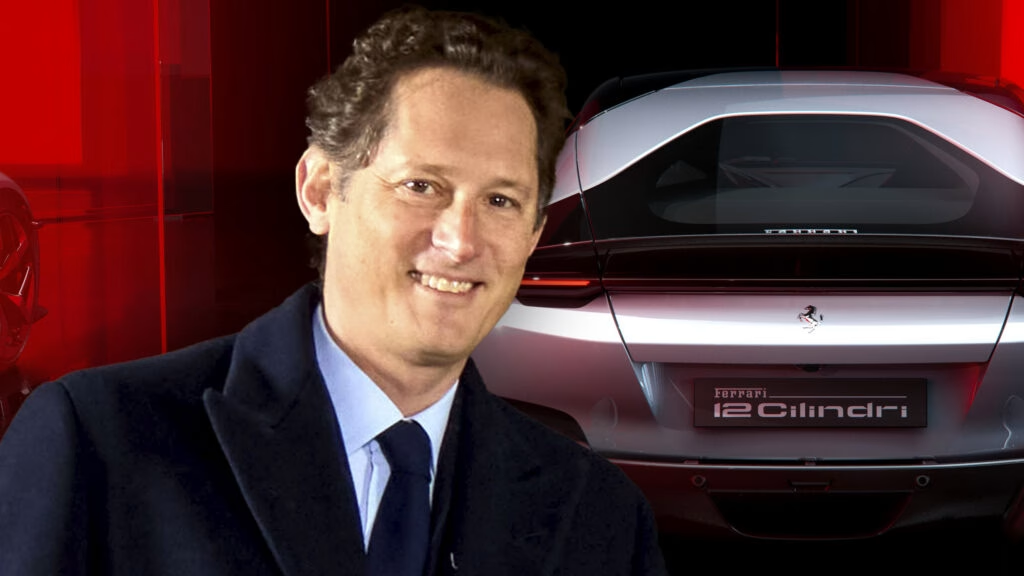Why Is John Elkann, Chairman of Stellantis and Ferrari, Facing Community Service?
John Elkann’s name carries serious weight in the automotive world. As the chairman of both Stellantis and Ferrari, he’s used to steering boardrooms, not soup kitchens. But this year, Elkann’s schedule could look dramatically different. Italian authorities have reached an agreement with Elkann and his siblings after a high-profile tax inheritance investigation, and the result? He’ll be trading some of his executive duties for community service—at a location of his choosing.
What’s Behind the Tax Dispute Involving the Agnelli Heirs?
The roots of this saga stretch back to 2019, when Elkann’s grandmother, Marella Caracciolo, passed away. She left a fortune estimated at €800 million (about $942 million) to John and his siblings, Lapo and Ginevra. Italian prosecutors alleged that the siblings failed to declare a hefty €249 million ($293 million) in assets, much of it linked to Caracciolo’s residence in Switzerland.
This wasn’t just a paperwork oversight. Italian tax law is notoriously strict about offshore assets, and the authorities have ramped up enforcement in recent years. According to data from the European Commission, Italy collected over €19 billion in additional tax revenue from anti-evasion efforts in 2022 alone. For the Agnelli heirs, the stakes were personal and financial.
How Did Elkann Resolve the Case Without Admitting Guilt?
Rather than face a drawn-out trial, Elkann and his siblings struck a deal. They agreed to pay €183 million ($215 million) to settle the matter. The twist? John Elkann will serve a year of community service, but he gets to pick where—whether it’s a center for the elderly or an organization helping people with addiction. Italian prosecutors confirmed that Elkann won’t have to admit guilt as part of the agreement, a common feature in high-profile settlements where the focus is on restitution rather than retribution.
This approach isn’t unique to Italy. Across Europe, tax authorities are increasingly using settlements and alternative sanctions to resolve complex inheritance and offshore asset cases. The logic is simple: get the money back, avoid lengthy court battles, and—where possible—extract some public benefit.
What’s the Bigger Picture With the Agnelli Family’s Wealth and Legal Battles?
The Agnelli dynasty, founders of Fiat and long-time power players in Italian industry, have a history of complex inheritance disputes. When Gianni Agnelli, the legendary Fiat boss, died in 2003, he left a €1.2 billion ($1.4 billion) estate to his daughter Margherita. She’s been fighting to change the terms of that inheritance ever since, hoping to benefit her children from a second marriage rather than the Elkann branch.
These family feuds aren’t just tabloid fodder—they highlight the challenges of managing multi-generational wealth in a globalized world. In 2023, Italian authorities seized nearly €75 million ($88 million) in assets from the Elkanns and other family members as part of the ongoing dispute. The legal wrangling shows no signs of slowing, and it’s a reminder that even the most powerful families aren’t immune from scrutiny.
How Might Community Service Impact Elkann’s Role at Stellantis and Ferrari?
Details about Elkann’s community service remain under wraps. We don’t know how many hours he’ll serve or how he’ll juggle his corporate responsibilities. But the optics are clear: one of the world’s most influential automotive executives will be spending part of his year giving back, not just giving orders.
Will this affect his leadership? Unlikely, at least in the short term. Both Stellantis and Ferrari have deep benches of executive talent, and Elkann’s role is more strategic than operational. Still, it’s a rare moment of public accountability for a figure who usually operates behind closed doors.
What Does This Mean for Corporate Accountability and High-Profile Tax Cases?
Elkann’s case is a microcosm of a broader trend. Governments across Europe are cracking down on tax evasion and inheritance disputes, especially among the ultra-wealthy. According to the OECD, global tax authorities have recovered over $100 billion in hidden offshore assets since 2009, thanks in part to tougher reporting standards and international cooperation.
But the Elkann settlement also raises questions about fairness. Critics argue that wealthy individuals can often negotiate outcomes—like community service instead of jail time—that wouldn’t be available to ordinary citizens. Supporters counter that large settlements and public service can have a bigger societal impact than incarceration.
The big takeaway? Accountability at the highest levels isn’t about perfection—it’s about smarter adjustments. Start with one change this week, and you’ll likely spot the difference by month’s end. Whether you’re managing a family business or your own finances, transparency and adaptability are the real keys to staying ahead.

